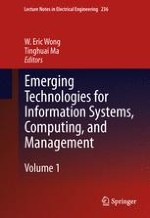2013 | OriginalPaper | Chapter
46. Electrophysiological Correlates of Processing Visual Target Stimuli during a Visual Oddball Paradigm: An Event-Related Potential Study
Authors : Bin Wei, Bin Li, Yan Zhang
Published in: Emerging Technologies for Information Systems, Computing, and Management
Publisher: Springer New York
Activate our intelligent search to find suitable subject content or patents.
Select sections of text to find matching patents with Artificial Intelligence. powered by
Select sections of text to find additional relevant content using AI-assisted search. powered by
